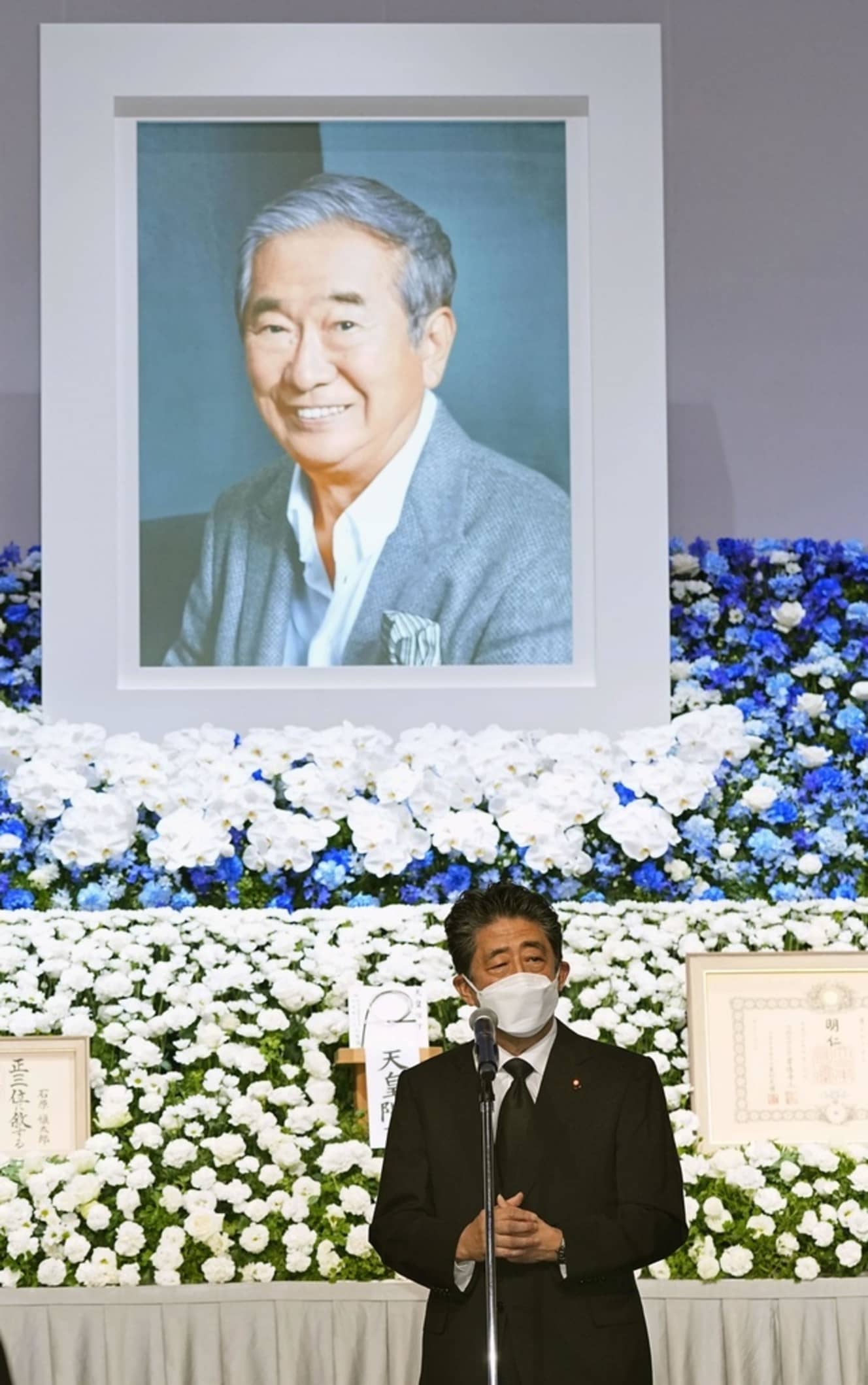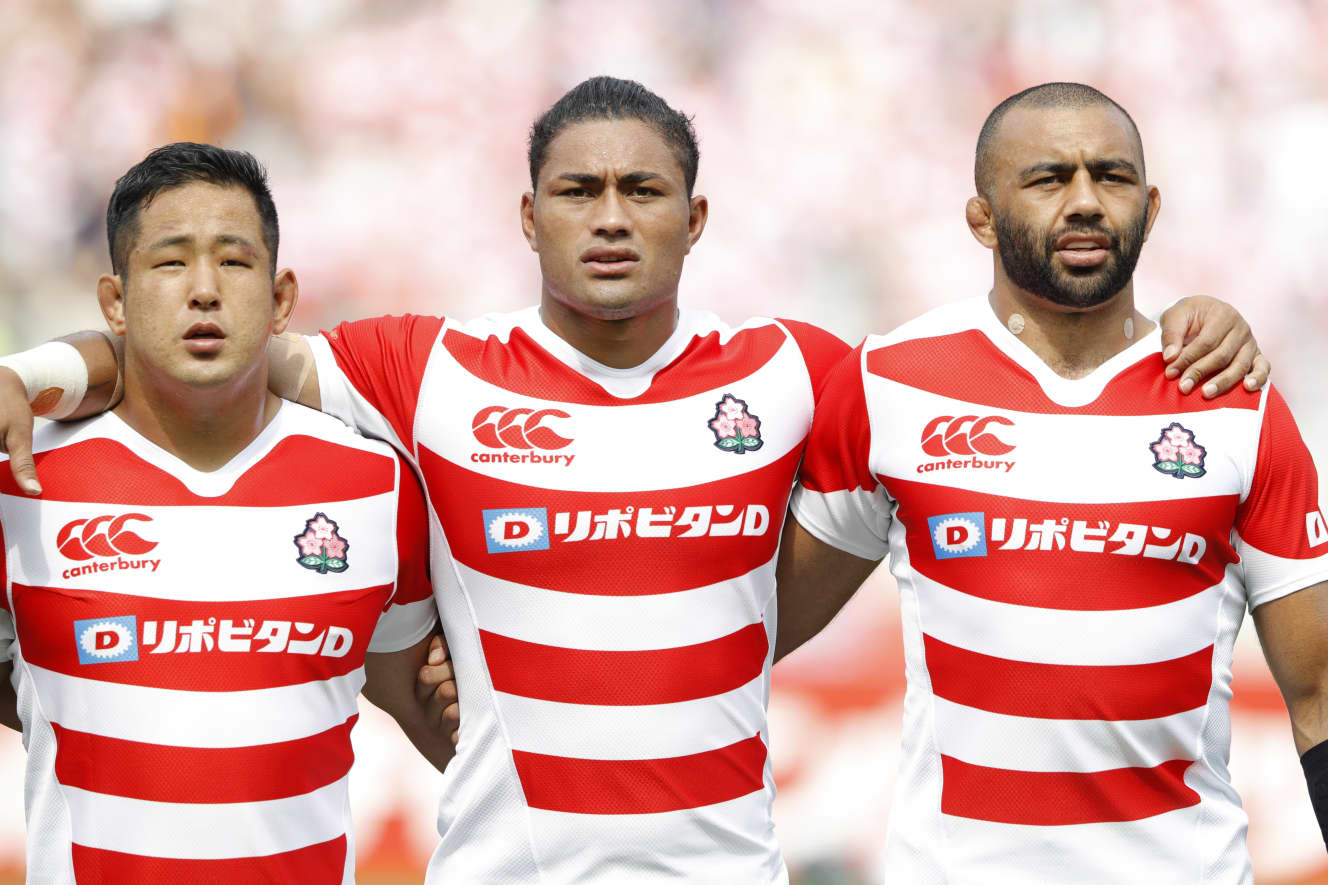Rugby’s Shintaro Ishihara: “Retirement crisis” behind his ability to match the current national team

Shintaro Ishihara of Tokyo Suntory Sangorias (“Sangorias”). The 32-year-old, known for having the same name as a writer who has served as governor of Tokyo, laughs that his goal is “not to lose the name. Even though he is on the verge of retirement, he still devotes himself to training in the off-season.
Every time something happens, I get similar questions. Shintaro Ishihara laughs.
My goal is not to lose my name. I want to become someone like that (whose passing is talked about).
This is the first year of “Rugby League One,” which began in January of this year. The spread of the new coronavirus had not stopped, and a number of matches had been canceled. The February 1 death of the writer of the same name came at just such a time.
Since 2006, when he started playing rugby at Kokugakuin Kugayama High School, he had attracted attention from many angles because his name happened to be the same as that of the then current governor of Tokyo.
I was contacted by several acquaintances about the upcoming obituary as well. When asked a related question, he responded calmly for the time being.
He is not a name-dropper. The determination that was released in a joking tone is reflected in Ishihara’s way of dealing with rugby and life.
In early June, when the “Farewell Party for Shintaro Ishihara” was held in Tokyo, Ishihara was visiting the San Goliath clubhouse in the suburbs. He was torturing his body.
The season was already over. From June onward, the rest of the team, except those on national team-related training camps, would be off-season.
Ishihara, however, sees this period of the year, which just ended with a loss, as the perfect time to train. While keeping his desire for revenge alive, he works hard at his gym work and running, even while “taking a break.
His frustration is his fuel.
This period is important. I’m not doing this for the sake of telling the younger members of the team, but I hope that while doing it for myself, I can also make the people around me feel something.

I wondered if it would be the end.
It was the rainy season. Was it at this time of year in 2018 that I was plagued by a tragic fate?
It was after late June of that year that I sensed something unusual. After a match for the national team I was selected for at the time, I felt I needed a doctor’s checkup. I was told.
If this continues, I will not be able to play rugby.
He had a neck injury.
He was at a turning point in his career. He had just switched from being an employee athlete who played while working to becoming a professional athlete.
Even though he had just chosen a position with no guarantees, “I thought about retiring, and I wondered if it would be the end of my career,” he said. A period of hardship began.
I was supported. During the period of his mourning, he was able to participate in coaches’ meetings while still in the position of a player. This was at the urging of then manager Keisuke Sawaki (now manager of the Yokohama Canon Eagles).
The experience helped to alleviate the alienation of not being able to stand on the field, and above all, it reaffirmed for me that the team is made up of many layers of dedication. It broadened my perspective.
I thought I understood before I got hurt that the coaching staff was preparing off the field, with practices, game planning, reviews, and previews. It’s just that the time involved was much longer than I had ever imagined! Plus, some things in coaching don’t have answers, like how to communicate what you’re thinking…. I learned a lot.”
He also worked hard for an early return to work.
In addition to his regular rehabilitation, he took enzyme baths, which are expected to detoxify the body.
Since it was a neck injury, I wanted to improve my body as a whole,” he said.
He hoped that by improving the circulation throughout his body, he could eventually eliminate the discomfort around his neck.
He searched for “enzyme bath” on his smartphone and visited various specialty stores. He would then visit various stores specializing in enzyme baths, examining the ingredients and benefits, which varied from place to place. It was like a coffee connoisseur visiting cafes.
He has continued this habit since 2019, when he was able to return to competition, and is now in better condition than when he was a young athlete.
He is so fascinated by enzyme baths that he would like to open his own business in the future.
I think it is good for my body, and even now I try to go before I have any problems,” he says. I can’t say it out loud, but it’s also good for cutting out alcohol! It keeps me refreshed and ready for the weekend games. …I’ve even been contacted (recently) by people from the enzyme bath (store) that took care of me while I was injured, so I miss it…”
This past season, in which he narrowly missed reaching the top, was also the year in which he was able to increase his playing time the most since his return to the team.
While competing for the left prop position with such outstanding juniors as current Japan national team member Yukio Morikawa, he started 11 of the 15 actual games. In the semifinals of the playoffs, in which he made his 100th appearance, and in the final, Ishihara was given the number 1 position.
His mobility shined through. Standing 181 cm tall and weighing 105 kg, he sometimes made good tackles on opponents’ light runners.
This was the result of his efforts to take care of his body and push himself since the preseason.
He said, “I was able to make time to deal with my body and mind. (At the time), I was frustrated that I couldn’t make the national team, so I decided to train harder than the national team.
When quoted by a celebrity with the same name, he says, “I didn’t want to be outdone by the name. In reality, however, he has more down-to-earth goals.
I will be able to play for Coralias in next season’s League One. I will fulfill my position.
Next season is a World Cup year (just before the 2023 tournament in France). There may be some replacements (changes in the team members to take into account the physical condition of the players). Under such circumstances, I want to be a player that the coaches can count on.
Unlike before the Japan Tournament, he is a little less concerned about making the national team. Still, he wants to be someone who can help his seniors, juniors, and superiors nearby. That is why he works hard.

Interview and text: Kazuya Mukai
Sports writer born in Toyama Prefecture in 1982. He graduated from Seijo University's Faculty of Arts and Letters with a degree in fine arts, and has been working as a sportswriter since 2006. He has been working as a sportswriter since 2006, mainly covering rugby. He is the author of "Sunwolves no Chosen: Super Rugby, Tsuyouru Wolves no Kiroku" (Sunwolves' Challenge: Record of Super Rugby Wolves) published by Futabasha.